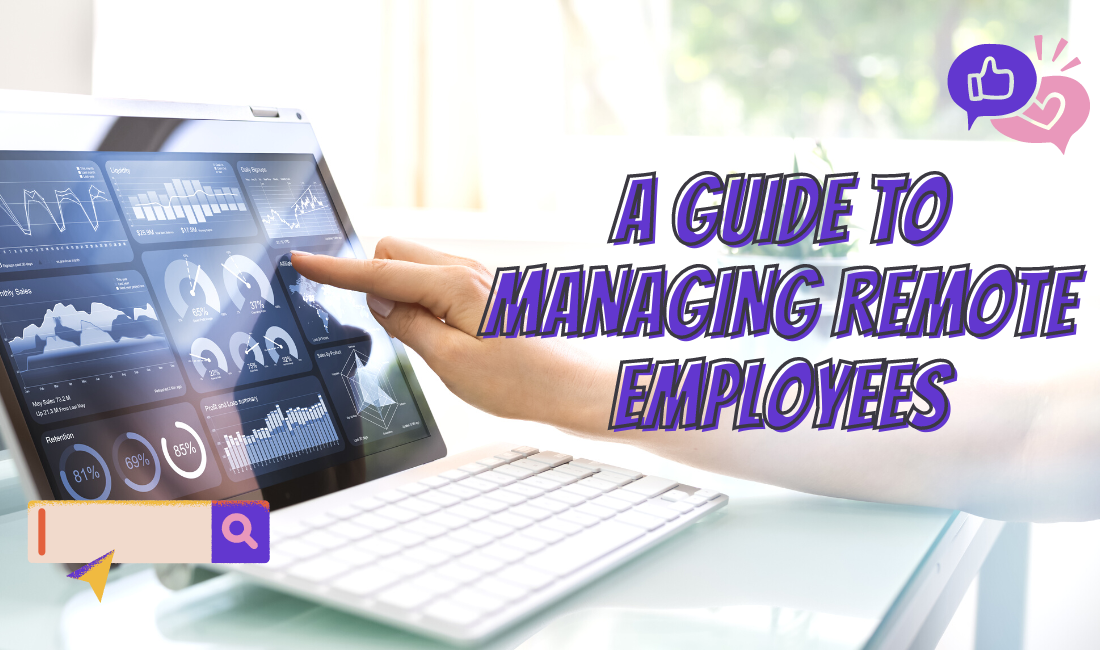Managing a team of remote employees can be a challenge, but with a few thoughtful steps, you can make the process as smooth as possible. In this article, we’ll outline the basics of managing remote employees and provide tips on how to best implement your team’s work-from-anywhere policies.
For some businesses, the idea of having employees located all over the world is a dream come true. For others, it can be a nightmare – managing and working with remote employees can be a challenging task. In this guide, we’ll teach you everything you need to know about managing a remote team, from setting up communication channels to dealing with any issues that might arise.
Background
Remote employees are a growing trend in the workplace, but managing them can be a challenge. This guide will help you manage your remote employees effectively.
1. Establish a clear and concise policy for remote employment. Make sure that all employees understand your expectations and policies for working remotely.
2. Set up communication channels between you and your remote employees. Create an effective system for communicating with them, whether that’s over email, chat, or video conferencing software.
3. Be prepared to provide support for your remote employees. Make sure that you have policies and procedures in place to address any issues that may arise.
4. Monitor their performance and progress regularly. Make sure that you track their overall development and progress so that you can provide feedback and support as needed.
Types of Remote Work
Remote work is becoming increasingly popular, as employers realize the benefits of freeing up employees to work from wherever they choose.
Here are a few types of remote work:
1) Remote work with a telecommuting employer. This is the most common type of remote work, in which an employee works from home.
2) Remote work with a co-working company. This is where an employee works out of their own home but shares space and resources with other remote workers.
3) Remote work with a freelance contractor. This is where an employee contracts out to do work remotely, usually via an online marketplace.
Managing Remote Employees
There are a few things to keep in mind when managing a remote team:
-Keep communication open. Make sure you have active and regular communication between all team members. This includes sending and receiving important updates, meeting regularly for check-ins, and keeping everyone up to date on progress.
-Make sure you have clear and concise communication channels. If one team member is having trouble understanding what another is saying, it can be difficult to get the job done. Make sure all communications are sent through clear and easy-to-use channels, like chat, video calls, or email.
Don’t miss>>>
- What is a Landing Page? The Complete Guide (+ Examples)
- What Is a Drip Campaign and How to Create Your Own
- Data-Driven Decision Making: A Complete Guide
-Be proactive about solving problems. When something goes wrong with a remote employee’s work, take the time to investigate and fix the issue as quickly as possible. This will help maintain trust and confidence in the team’s ability to work together smoothly.
Tips for Managing Remote Employees
If you’re managing a remote team, here are a few tips to keep in mind:
1. Establish Communication Routes. Make sure everyone knows how to connect with each other and has clear phone and chat lines for communication. This will help reduce misunderstandings and keep everyone on track.
2. Keep Regular Meetings Short and Sweet. Meetings shouldn’t last more than 15 minutes and keep them focused on key issues. That way, everyone can get their points across without wasting time on irrelevant chatter.
3. Use Video Calling for Best Results. If video calling is available, make use of it to stay connected with your team members. It’s a great way to get a sense of their energy and their physical surroundings.
4. Respect Remote Employees’ Time Limits. Just as you wouldn’t expect your team members in the office to work all day long, don’t expect them to work all night long too. Set reasonable work hours and make sure everyone knows about them so they can plan their days accordingly.
Hard to maintain a company culture

When you have a remote team, it can be hard to maintain the company culture.
Here are a few tips to help:
1. Have regular team meetings.
2. Make sure everyone knows the company values and culture.
3. Celebrate team successes together.
4. Communicate regularly, both in person and via email, chat, or other forms of communication.
Working remotely can be distracting
One of the benefits of working remotely is that it can be a great way to cut down on distractions. However, this can also be one of the biggest challenges when managing remote employees.
Here are a few tips to help you manage distractions and make sure your team is productive:
1. Set clear expectations for how work will be handled. Make sure everyone understands what they are expected to do and when they are expected to do it. This will help keep everyone on track and ensure that tasks are completed as scheduled.
2. Encourage communication. Make sure all members of the team are aware of important deadlines and other events that may affect their work. This way, they can stay abreast of the latest developments and make necessary adjustments as needed.
3. Provide support resources. If someone is struggling with a task, provide them with support resources or guidelines so that they can complete the task successfully. This will help to keep everyone productive and on track.